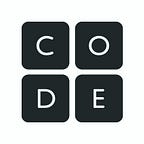In celebration of the 2018 Computer Science Education Week (CSEdWeek), the Computer Science Teachers Association (CSTA) and Code.org are pleased to announce the second annual Champions of Computer Science Awards. From developing tools and curriculum for students with disabilities, to providing needed tech equipment to underserved schools, these winners represent the students, teachers, schools, districts, and organizations working to make computer science education accessible for everyone.
Selected from a pool of more than 200 nominees, the winners will be presented with their awards at a special 2018 CSEdWeek kickoff event on Dec. 3 featuring Melinda Gates of the Bill & Melinda Gates Foundation. Brad Smith, president and chief legal officer of Microsoft, will also speak.
Student Winner — Jocelyn Marencik (Richmond, VA)
Jocelyn Marencik created Got Tec Richmond to help provide technology to underserved schools in the Richmond, Virginia area. Through fundraisers, corporate donations, crowdfunding, and grants, Got Tech has raised almost $40,000, and has been able to make at least two donations to every elementary and middle school in the Richmond Public School system. More than 2,000 students in 90 classrooms now have access to technology they didn’t before, thanks to Jocelyn’s work.
Teacher Winner — Robert DeFillippo (Jefferson Hills, PA)
After realizing it can take more than 10 years for special needs students to receive the same benefits as other students, Robert DeFillippo set out to find a way to adapt existing curriculums for his classrooms. He formulated a whole new teaching strategy based on a modified version of the Code.org curriculum. Known as TEAMS — teaching engaging academics made special — this modified version of the curriculum was more accessible for his autistic students, and makes the same lessons accessible for a differently-abled group of students.
Teacher Winner — Chanel White (Lancaster, TX)
Chanel White significantly expanded her school’s computer science education offerings, beginning with an after-school coding club. Within months, the club’s attendance increased from just a handful of dedicated attendees to more than 50 — a major achievement in a school of roughly 600 students! In addition, she started teaching a computer science class that has since turned into an entire computer science lab and oversees a robotics competition for 4th graders. White teaches in the Lancaster Independent School District in Texas, where the majority of her students are low income.
School Winner — Seaside High School (Seaside, CA)
Starting in 2013, Seaside High School implemented a robust CS for All vision, and today has 635 students enrolled in a computer science class. Better yet, after making some tweaks, the CS for All program is more inclusive than ever, and accurately reflects the school’s demographics: 70% of CS learners are Hispanic, 11% are African American, 8% are White, 6% are Filipino. 74% of CS learners qualify for free/ reduced lunch, and 16% are English language learners. As more students get to engage with computer science, their opportunities after high school grow as well.
District Winner — Lincoln Public Schools (Lincoln, NE)
Lincoln Public Schools has been a computer science champion since Hour of Code began in 2013. That year, the district won a $10,000 prize and ranked 4th in the world in terms of student participation. Five years later, the district in Lincoln, Nebraska continues to lead when it comes to expanding computer science to the district’s more than 40,000 students and those in the surrounding areas, offering computer science courses in all K-7 classes and growing its female enrollment from 15% to 24% at high school, and 37% to 47% at middle school.
Organization Winner — GirlsCodingWithGirls (Washington, NJ)
GirlsCodingWithGirls (GCWG) began in 2014 when Adesola Sanusi, a senior at Warren Hills Regional High School, launched a program aimed at inspiring girls with computer science. Working with faculty advisor Daryl Detrick, Sanusi developed a plan to connect high school mentors with middle and elementary school students. The program was so successful that, even after Sanusi graduated, it continued, with more than 250 participants and 40 high school mentors. Every mentor involved in the program that has graduated has gone on to study STEM after high school, primarily computer science and engineering.
Expanding CS Opportunities — Richard Ladner (Seattle, WA)
Richard Ladner is Professor Emeritus in the Paul G. Allen School of Computer Science and Engineering at the University of Washington, where he began his career in 1971. He is Principal Investigator for AccessCSforAll, an NSF-funded that is helping make K-12 computer science education accessible for students with disabilities. In addition to his research on accessible computing, he has actively worked with K-12 students with disabilities in computer science programs that he developed. Notable among his programs was the Summer Academy for Advancing Deaf and Hard of Hearing in Computing that was held from 2007–13.
Expanding CS Opportunities — The Quorum Programming Team (Las Vegas, NV)
The Quorum programming language is a “born accessible” programming ecosystem, meaning it was accessible from its formation and has accessibility as a first-class design goal. It was invented by Andreas and Melissa Stefik in part because of observations of blind children. Current team members include Andreas Stefik, William Allee, Merlin Drews, Patrick Daleiden, Timothy Rafalski, Jack MacKey, Cristina Panks, Xinke (Rebecca) Cao, Matthew Gordin. They work with teachers and students throughout the U.S. to improve the language, libraries, and documentation.
Runners up
Student — Ella Scofield (Glendale, AZ)
Teacher — Rebecca Vadakara (Loxahatchee, FL)
School — P.S.31Q The Bayside School (Bayside, NY)
District — Riverside Unified School District (Riverside, CA)
Organization — Computer Science Teachers Association of New Jersey (CSTANJ)
